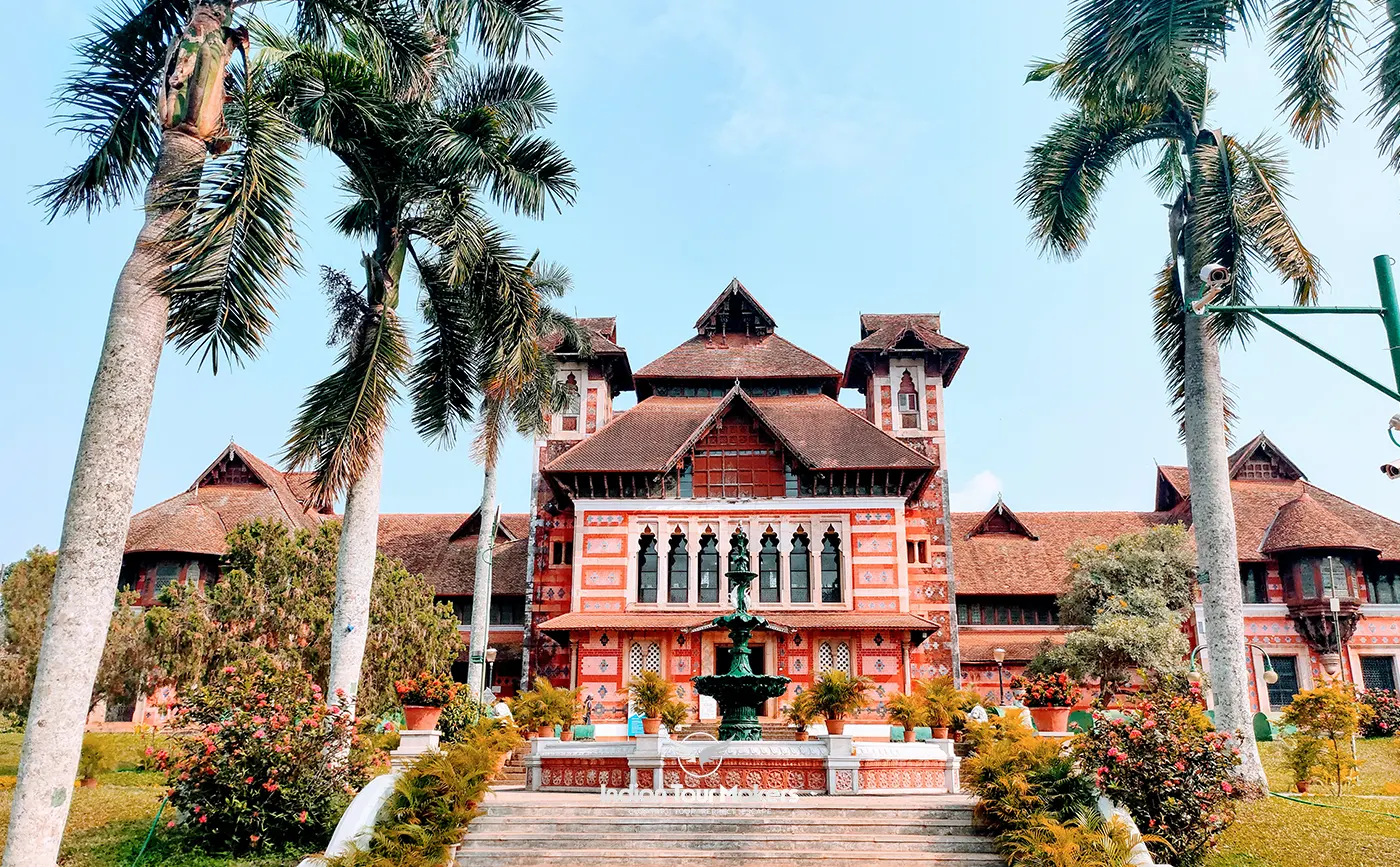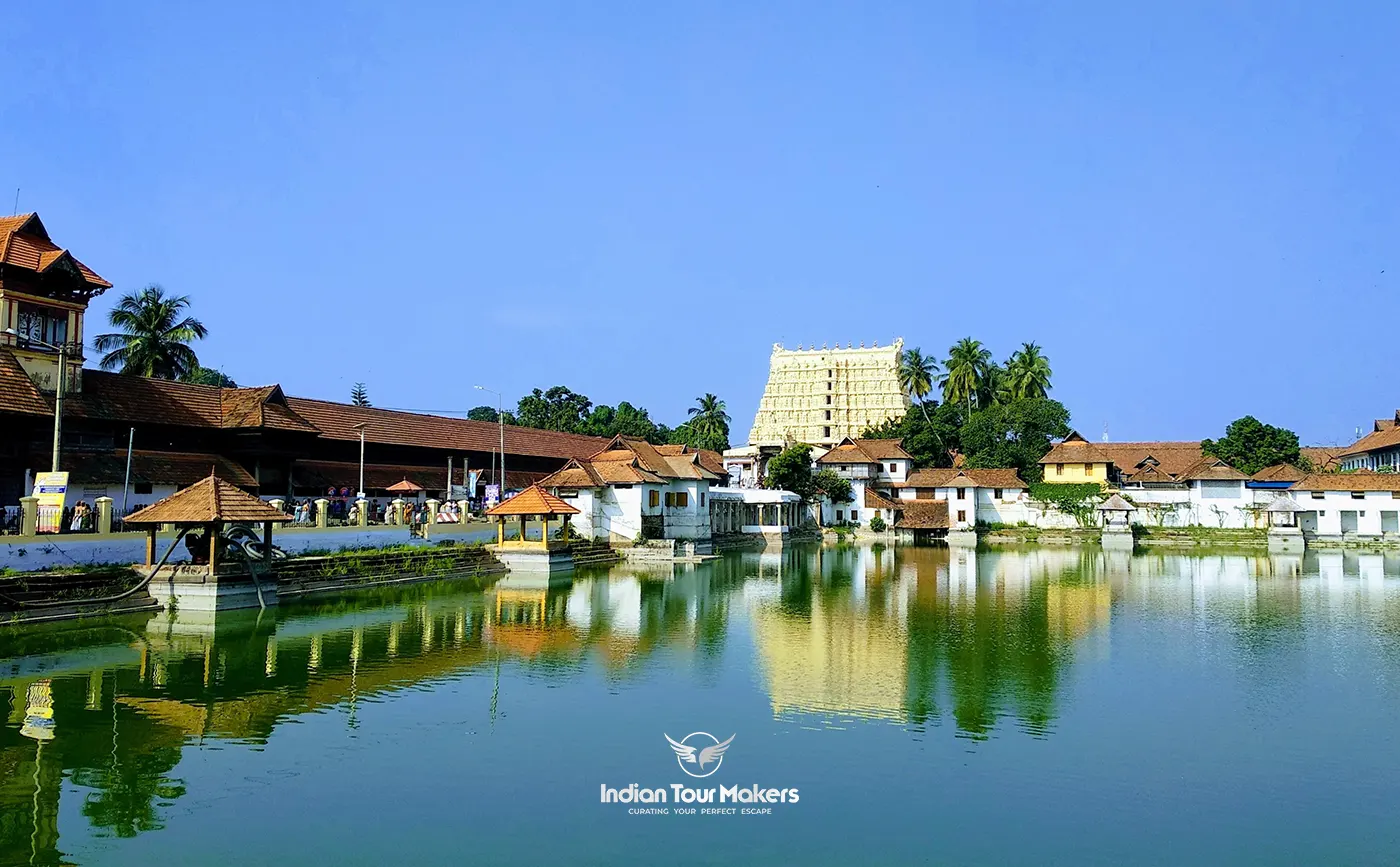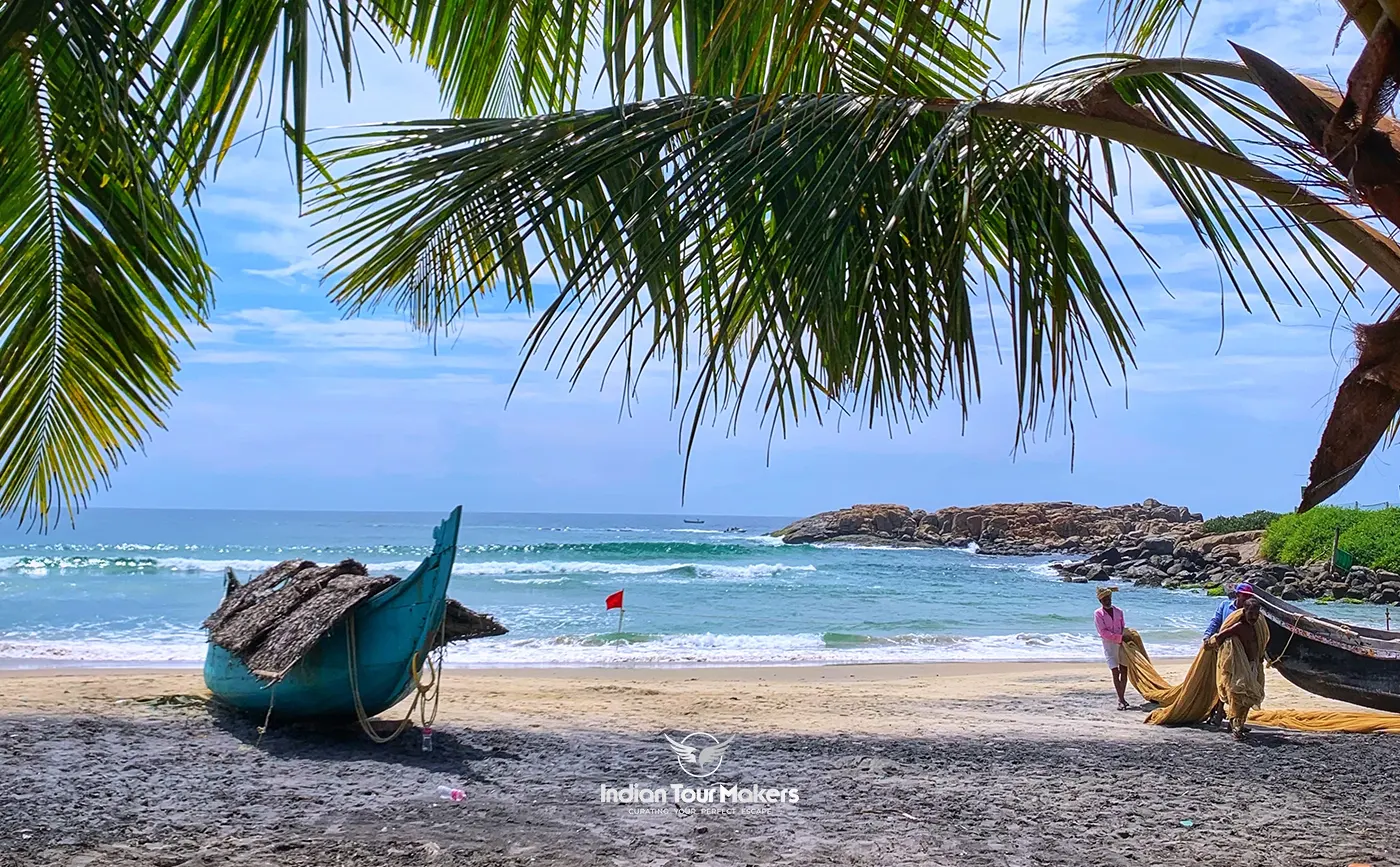




Welcome to Thiruvananthapuram, the captivating capital city of the vibrant state of Kerala, India. Sunlight seeps through swaying palm trees, casting dappled shadows on cobblestone streets. Imagine walking through these streets. Each step you take brims with culture, history, and the pulsating heart of Kerala.
The call of temple bells mixes with the gentle murmurs of the Arabian Sea. Rich, salty sea air fills your lungs. Taste the history in the air, the echoes of the ancient Kingdom of Travancore. A soft breeze whispers tales of the kings who once ruled here. Feel the past come alive.
An oasis of natural beauty, Thiruvananthapuram thrills the senses. A kaleidoscope of colors welcomes you at every turn. Verdant green of the forests. Brilliant blue of the ocean. Golden hues of the sandy beaches. Touch the spirit of the city in its tangible warmth.
Enchanting flavors tantalize your taste buds. Fresh, spicy notes of coconut-infused curries. The subtle sweetness of local desserts. Savor the unique blend of flavors that only Thiruvananthapuram can offer.
Beneath the swaying palms, nestled between the azure sea and rolling hills, lies Thiruvananthapuram, waiting to be explored. Your journey of discovery starts here. Welcome.
Thiruvananthapuram has a history dating back to the 1000 BC, deeply entrenched in the annals of time. Here is a brief overview of this fascinating city’s past.
The Ancient Period: Thiruvananthapuram, originally called ‘Ananthapuri’, has its roots traced back to ancient trading routes. It was a bustling hub, attracting merchants from far and wide, including the Greeks and Romans in 1000 BC.
The Rule of the Venad Dynasty: Fast forward to the 12th century AD, the city saw the rise of the Venad Dynasty. They left an indelible imprint on the city, with the famed Padmanabhaswamy temple being constructed during their reign.
The Kingdom of Travancore: The 18th century saw the advent of the powerful Kingdom of Travancore under the rule of King Marthanda Varma. He christened Thiruvananthapuram as the capital in 1745. This period marked the city’s golden age, transforming it into a cradle of art, architecture, and culture.
Colonial Period: The city encountered the colonial influences of the British Empire in the late 18th and early 19th century, which brought significant changes in administration and lifestyle.
Post-Independence: Post-1947, Thiruvananthapuram became the capital of the state of Travancore-Cochin. In 1956, after the reorganization of Indian states, it was declared the capital of Kerala.
In the present day, Thiruvananthapuram is an intriguing blend of the past and the present, a city where tradition and modernity co-exist harmoniously. As you walk its streets, the echoes of history reverberate, adding to the charm of this stunning city.
Location: Thiruvananthapuram is located in the southernmost part of the Indian subcontinent. It is situated on the west coast, bordered by the Arabian Sea to the west and the state of Tamil Nadu to the east.
Languages Spoken: The official language of Thiruvananthapuram is Malayalam. However, English is widely spoken and understood, making communication easy for international travelers.
Climate: Thiruvananthapuram has a tropical savanna climate. The city experiences heavy monsoons between June and November. The dry season, from December to May, is the best time to visit for favorable weather conditions.
Best known for: Thiruvananthapuram is best known for its rich history, beautiful architecture, and pristine beaches. The city is renowned for the Sri Padmanabhaswamy Temple, which houses one of the largest treasures in the world.
Popular Festivals: Onam, the harvest festival, is a major celebration in Thiruvananthapuram. Other significant festivals include Vishu (New Year), Navaratri, and Deepavali. The city is also host to the famous Attukal Pongala festival, recorded in the Guinness World Records as the largest gathering of women for a religious activity.
Tourist Attractions: Top attractions include Kovalam Beach, Napier Museum, Sri Padmanabhaswamy Temple, Trivandrum Zoo, Vellayani Lake, and Shanghumukham Beach among others.
Local Cuisine: Thiruvananthapuram offers a wide range of culinary delights. Staples include rice, coconut, and a variety of local spices. Must-try dishes are Kerala Sadya (a feast of Kerala cuisine), Appam with Stew, Kerala-style Prawn Curry, and sweet dishes like Payasam and Unni Appam.
October to February – Winter Season: This is the best time to visit Thiruvananthapuram. During these months, the weather is pleasant and cool, ideal for sightseeing and enjoying the various activities the city has to offer. It is a great time to explore the beaches, visit the temples, or take part in the festivals celebrated during these months.
March to June – Summer Season: These months are characterized by high temperatures, reaching up to 35°C. While it is not the most favorable time to visit, the city is less crowded, and you may find discounted rates for accommodation.
June to September – Monsoon Season: Thiruvananthapuram receives heavy rainfall during the monsoon. The city is enveloped in lush greenery, offering a stunning spectacle. However, the rainfall might disrupt outdoor activities and sightseeing plans.
Remember, the best time to visit depends largely on your preferences. Whether you love the vibrant energy of festivals, the tranquil ambiance of the beaches, or the lush green beauty during monsoons, Thiruvananthapuram welcomes you all year round!
By Air: Thiruvananthapuram International Airport is well-connected with major cities across the world. Regular flights operate from cities like New Delhi, Mumbai, and Chennai, among others, as well as international destinations. From the airport, taxis and auto-rickshaws are available for hire to reach the city center.
By Train: Thiruvananthapuram Central is the main railway station serving the city, connecting it with major cities and towns across India. Regular express and superfast trains ply to and from Thiruvananthapuram, offering a convenient mode of transport.
By Road: The city is connected by a network of well-maintained national and state highways. State-run and private buses connect Thiruvananthapuram with neighboring cities and states. For a more comfortable journey, you can hire taxis or self-drive to reach the city.
By Sea: For those looking for a unique experience, cruises are available from Kochi (Cochin) to Thiruvananthapuram. However, it is subject to weather conditions and availability.
Thiruvananthapuram, with its easy accessibility from various parts of the country and the world, is a travel-friendly destination. Choose your preferred mode of transport and embark on an unforgettable journey!

Subscribe to see secret deals prices drop the moment you sign up!

